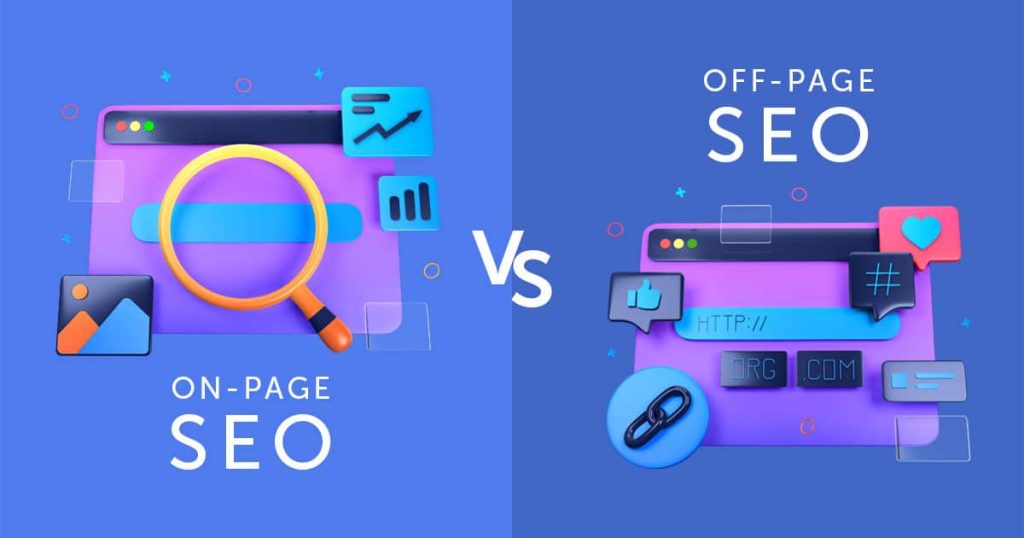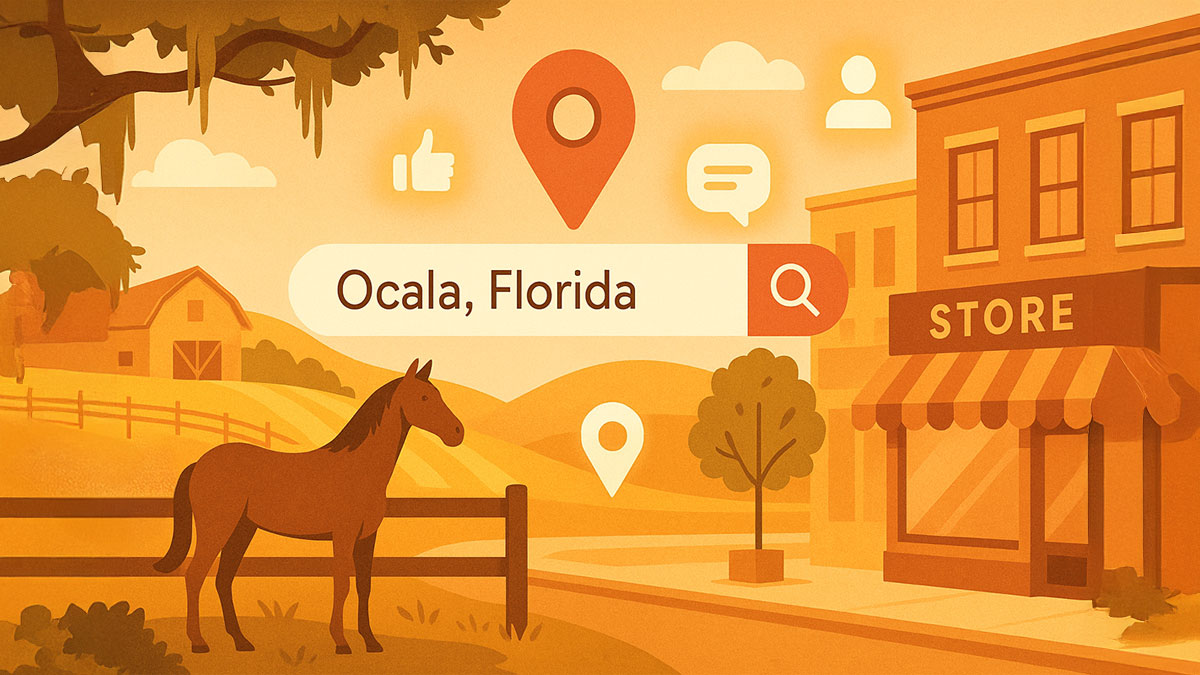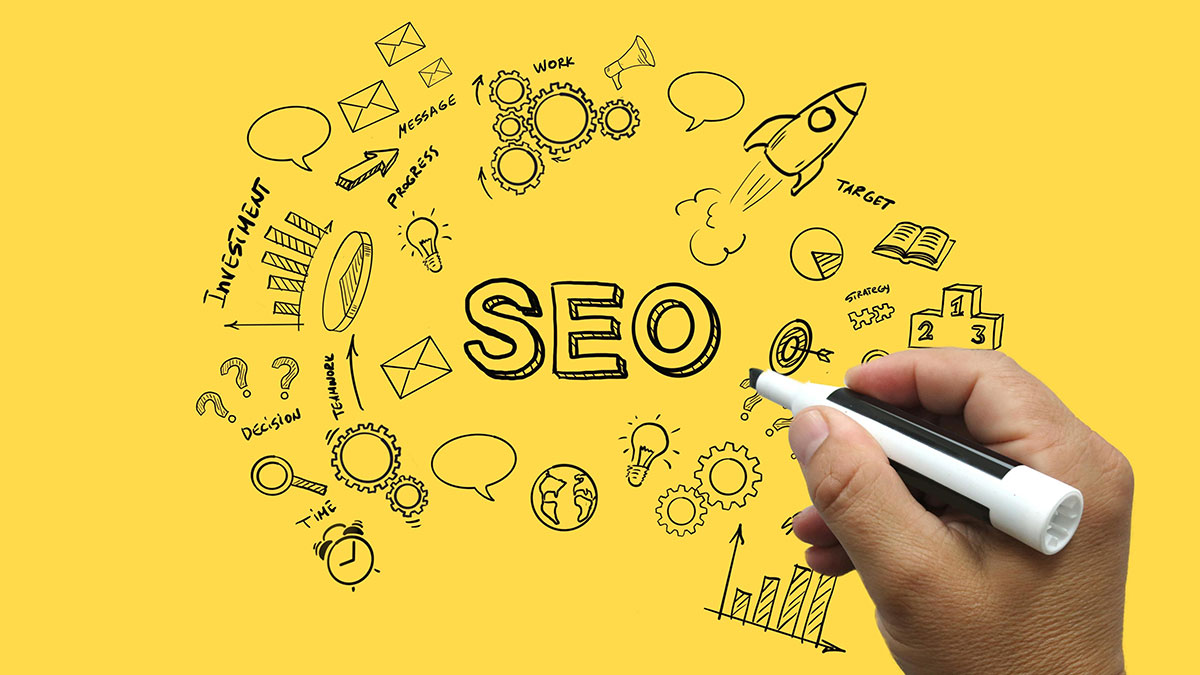Search engine optimization (SEO) is the process of improving a website’s visibility and ranking on search engine result pages (SERPs). It involves various techniques and strategies that can be broadly classified into two categories – on-page SEO and off-page SEO. Both are important for a successful SEO campaign, but they differ in terms of the activities involved and their impact on search engine rankings.

On-page SEO
On-page SEO refers to the optimization of a website’s individual pages to make them more search engine friendly. It involves optimizing the content, HTML source code, and other technical factors that help search engines better understand the content of the page.
Some of the on-page factors that are optimized include:
Page Titles
The page title is the first thing that users see when they search for content. It should be optimized to include the main keyword and accurately reflect the content on the page.
Meta Descriptions
Meta descriptions provide a brief summary of the content on the page. They should be optimized to include the main keyword and provide a clear description of the page.
Header Tags
Header tags (H1, H2, H3, etc.) are used to structure the content on a page. They should be optimized to include the main keyword and make it easier for search engines to understand the page’s structure.
Content Quality
The content on a page should be high-quality, relevant, and engaging. It should also include the main keyword and related keywords to improve its relevance.
Internal Linking
Internal linking helps search engines to navigate the website and understand the relationships between different pages. It should be optimized to include relevant anchor text and improve the website’s overall structure.
Page Speed
Page Speed is very important for a website. In fact, it’s so important that Google uses it as a ranking factor. Google has taken action to improve the loading speed of websites by providing a set of tools for developers and webmasters. One such tool is PageSpeed Insights.
The goal of on-page SEO is to make sure that the website’s individual pages are optimized for relevant keywords, have high-quality content, and provide a positive user experience. By optimizing on-page factors, search engines can better understand the relevance and quality of a website’s content, which can lead to higher rankings and increased visibility on SERPs.
Off-page SEO
Off-page SEO, on the other hand, refers to the optimization activities that take place outside of the website. It involves various promotional activities aimed at increasing the website’s visibility, authority, and reputation.
Some of the off-page factors that are optimized include:
Link Building
Link building involves acquiring high-quality backlinks from other websites to improve the website’s authority and ranking.
Social Media Marketing
Social media marketing involves promoting the website’s content on social media platforms to increase its visibility and engagement.
Online Reputation Management
Online reputation management involves monitoring and managing the website’s online reputation to improve its credibility and trustworthiness.
Influencer Outreach
Influencer outreach involves partnering with industry influencers to promote the website’s content and improve its visibility and authority.
The goal of off-page SEO is to increase the website’s authority and reputation by building high-quality backlinks, engaging with social media users, establishing a positive online reputation, and other promotional activities. By doing so, search engines can view the website as a trusted and authoritative source of information, which can lead to higher rankings and increased visibility on SERPs.
Key Differences between On-page SEO and Off-page SEO
While on-page SEO and off-page SEO both aim to improve a website’s visibility and ranking on search engine result pages, there are some key differences between the two:
Activities
On-page SEO involves optimizing the content and technical aspects of a website’s individual pages, while off-page SEO involves promotional activities that take place outside of the website.
Impact
On-page SEO primarily affects the individual pages of a website, while off-page SEO affects the website as a whole and its overall authority and reputation.
Control
Website owners have complete control over on-page SEO, but off-page SEO involves external factors that are often outside of their control.
Results
On-page SEO can result in immediate improvements in search engine rankings, while off-page SEO often takes longer to see results.
In conclusion, on-page and off-page SEO are two different types of search engine optimization techniques used to improve a website’s ranking and visibility on search engine result pages (SERPs). While on-page SEO focuses on optimizing individual pages on a website, off-page SEO focuses on building the website’s overall authority and reputation. Both on-page and off-page SEO are critical for a comprehensive SEO strategy, and a successful campaign requires a balance of both techniques.


